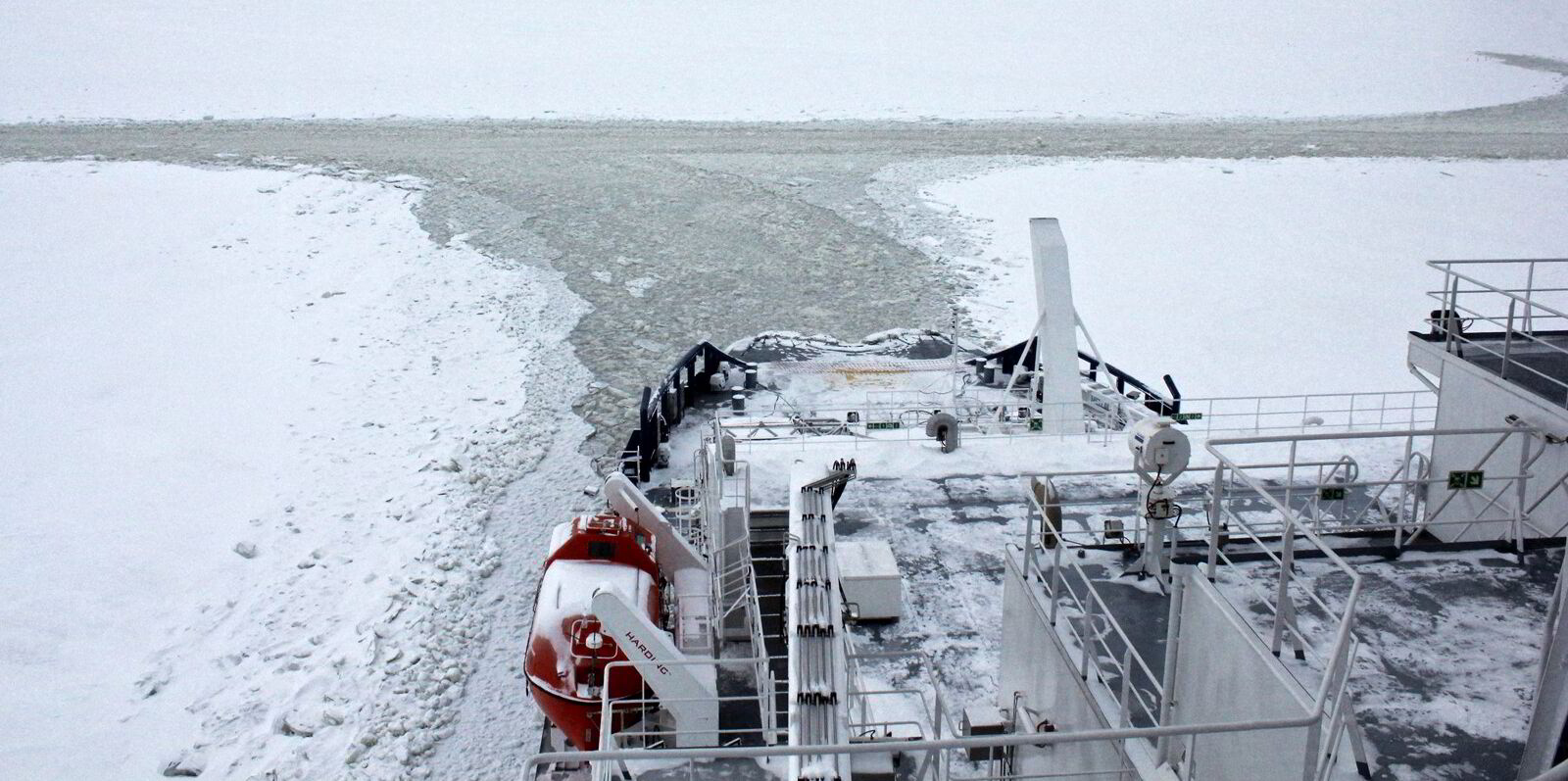Finland is powerless to stop hundreds of dark fleet tankers sailing past its coastline every month, raising fears that a serious incident will happen in the shallow waters of the Baltic Sea, particularly when ice begins forming in the winter.
“We are thinking when, not if as we have all the ingredients in the soup,” Carolus Ramsay Head of Maritime Policy at the Finnish Shipowners Association told TradeWinds.
“We have all the ingredients in the soup,” he said.
“We know many are in doubtful condition, they do not participate in inspection regimes, and some are very old and should be scrapped,” he said.
“There are very narrow straits with a lot of other traffic, the shadow fleet does not always have its automated identity signal on, or is transmitting misleading information.”
He pointed specifically to the increased risks in winter with many of the tankers not having ice-strengthened hulls, and the vessels’ crews not having any ice navigation experience.
“You can easily damage a vessel’s hull or propeller if you do not know what you are doing. Ice ridges can be three or four meters above the ice but may be 20 meters below the ice.

“So when you drive into a ridge the wrong way, you are driving into a wall.”
He also said there is a lot of crossing passenger traffic, notably in the Gulf of Finland where ferries constantly connect Helsinki with Tallinn.
The last ‘ingredient in the soup’ he said is the deliberate disruption to satellite navigation signals by Russia that can complicate safe navigation.
“This is not a pleasant environment for our members and nor for Finland as a major catastrophe is expected sooner or later,” he said
“If something happens in the winter with ice, it is impossible to clear the ice. It may seem a faraway problem for others, but it is a real problem for us.”
He admitted that it is difficult politically and legally for Finland or other Baltic Sea states to do anything, with Russia relying so heavily on its freedom of passage through the waters of the Baltic Sea
“The political aspect is difficult when you think about who you are meddling with,” he conceded.
“There are not many politicians willing to do anything.”




